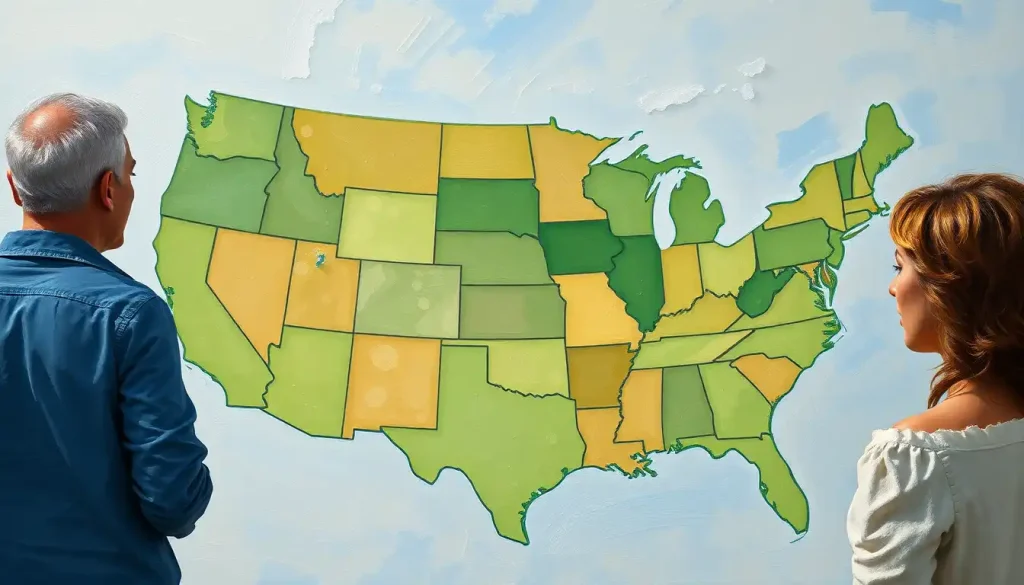While billionaires race to space in private rockets, nearly half of American families struggle to afford basic necessities – a stark reminder that our current approach to wealth distribution isn’t working. This glaring disparity between the ultra-wealthy and the average citizen has sparked intense debates about the need for a more equitable society. As we grapple with these issues, it’s crucial to explore the concept of wealth sharing and its potential to create a fairer, more prosperous world for all.
Unraveling the Wealth Sharing Puzzle
Wealth sharing, at its core, is about redistributing resources more evenly across society. It’s not about taking everything from the rich and giving it to the poor. Rather, it’s a nuanced approach to ensuring that everyone has access to opportunities and a decent standard of living. But why is this so important?
The numbers paint a sobering picture. In the United States, the top 1% of households hold more wealth than the bottom 90% combined. This level of inequality isn’t just a statistic – it has real, tangible effects on people’s lives. From access to education and healthcare to the ability to weather financial storms, the distribution of wealth shapes our society in profound ways.
But here’s the kicker: sharing wealth isn’t just about helping those at the bottom. It can benefit everyone. When more people have the means to participate fully in the economy, it drives innovation, increases consumer spending, and creates a more stable society. It’s like giving the entire economic engine a tune-up, allowing it to run more smoothly and efficiently.
A Trip Down Memory Lane: Wealth Sharing Through the Ages
The idea of sharing wealth isn’t new. In fact, it’s as old as civilization itself. Ancient societies often had mechanisms for redistributing wealth. The Aztecs, for instance, had a system where successful merchants were expected to host lavish feasts for the community. It wasn’t just about showing off – it was a way of circulating wealth and maintaining social cohesion.
Fast forward to more recent times, and we see economic theories that support wealth sharing gaining traction. John Maynard Keynes, one of the most influential economists of the 20th century, argued that reducing inequality was crucial for economic stability. He believed that when wealth is concentrated at the top, it leads to underconsumption and economic stagnation.
We’ve seen successful wealth sharing initiatives in action too. Take the Share the Wealth Program, proposed by Huey Long in the 1930s. While controversial, it sparked important conversations about economic equality that still resonate today. More recently, countries like Finland have experimented with universal basic income, showing promising results in reducing stress and improving employment outcomes.
The Toolbox: Mechanisms for Sharing Wealth
So, how exactly can we go about sharing wealth more equitably? There’s no one-size-fits-all solution, but several mechanisms have shown promise.
Progressive taxation is a cornerstone of many wealth sharing strategies. The idea is simple: those who earn more pay a higher percentage in taxes. This helps fund public services and social programs that benefit everyone, effectively redistributing wealth.
Universal basic income (UBI) is another approach gaining attention. It involves providing all citizens with a regular, unconditional sum of money. While it might sound radical, proponents argue that it could provide a safety net that allows people to take risks, pursue education, or start businesses.
Employee ownership and profit-sharing programs offer another avenue for wealth sharing. When workers have a stake in the company’s success, it can lead to increased productivity and a more equitable distribution of profits.
Philanthropy and charitable giving also play a role. While they shouldn’t be seen as a replacement for systemic changes, they can make a significant impact. The Spread the Wealth movement encourages high-net-worth individuals to donate a substantial portion of their wealth to causes that benefit society.
Bumps in the Road: Challenges to Wealth Sharing
Implementing wealth sharing policies isn’t without its challenges. Political resistance can be fierce, with powerful lobbies often pushing back against measures that might reduce their wealth or influence.
There are also economic concerns to consider. Critics argue that excessive wealth redistribution could dampen incentives for innovation and hard work. It’s a delicate balance – we want to create a fairer society without stifling the entrepreneurial spirit that drives progress.
Cultural attitudes towards wealth and success also play a role. In many societies, extreme wealth is seen as a marker of success and something to aspire to. Changing these deeply ingrained beliefs can be an uphill battle.
The Ripple Effect: How Sharing Wealth Transforms Society
Despite these challenges, the potential benefits of sharing wealth are too significant to ignore. Let’s paint a picture of what a more equitable society might look like.
First and foremost, we’d see reduced income inequality. This isn’t just about making numbers on a chart look better – it has real-world implications. When the gap between the rich and poor narrows, social mobility improves. This means that a child born into a low-income family has a better shot at climbing the economic ladder.
Economic stability is another key benefit. When wealth is more evenly distributed, the economy becomes more resilient to shocks. It’s like having a diverse investment portfolio – if one sector struggles, others can pick up the slack.
Perhaps most importantly, sharing wealth can lead to increased social cohesion and community well-being. When people feel that the system is fair and that they have a stake in society’s success, it fosters a sense of unity and shared purpose.
Be the Change: Individual Actions for Sharing Wealth
While systemic changes are crucial, individual actions can also make a difference. Here are some ways you can contribute to a more equitable society:
1. Personal budgeting for charitable giving: Set aside a portion of your income for causes you care about. Even small amounts can add up over time.
2. Invest responsibly: Consider putting your money into socially responsible companies that prioritize fair wages and sustainable practices.
3. Support local businesses: By shopping locally, you’re helping to keep wealth within your community.
4. Advocate for change: Use your voice to support policies that promote wealth sharing. This could mean voting, contacting your representatives, or joining advocacy groups.
The Road Ahead: Envisioning a More Equitable Future
As we’ve explored, sharing wealth isn’t just about fairness – it’s about creating a society that works better for everyone. From ancient civilizations to modern economic theories, history has shown us the value of more equitable wealth distribution.
The path to a more equitable society won’t be easy. It requires overcoming significant political, economic, and cultural hurdles. But the potential rewards – reduced inequality, improved social mobility, enhanced economic stability, and increased social cohesion – make it a journey worth undertaking.
As individuals, we each have a role to play. Whether it’s through our spending habits, investment choices, or political engagement, we can contribute to a more equitable distribution of wealth. And for those in positions of power – policymakers, business leaders, and influential individuals – there’s an opportunity and a responsibility to champion systemic changes that promote wealth sharing.
The democratization of wealth isn’t just a lofty ideal – it’s a practical necessity for creating a more stable, prosperous, and harmonious society. By working towards more equitable wealth distribution, we’re not just sharing money – we’re sharing opportunities, security, and hope for a better future.
As we stand at this crossroads, facing unprecedented levels of inequality, we have a choice to make. Will we continue down the path of concentration of wealth, with its attendant social and economic instabilities? Or will we choose a different route, one that leads to a more equitable and prosperous society for all?
The journey towards a more equitable society won’t happen overnight. It’s a marathon, not a sprint. But every step we take – whether it’s supporting wealth sharing policies, making conscious consumer choices, or simply shifting our perspective on wealth and success – brings us closer to that goal.
In the end, sharing wealth isn’t about dragging anyone down. It’s about lifting everyone up. It’s about creating a world where success isn’t measured by the size of one’s bank account, but by the strength of our communities and the well-being of all our citizens. That’s a world worth striving for – and it’s within our reach if we’re willing to share the journey.
References:
1. Saez, E., & Zucman, G. (2016). Wealth Inequality in the United States since 1913: Evidence from Capitalized Income Tax Data. The Quarterly Journal of Economics, 131(2), 519-578.
2. Keynes, J. M. (1936). The General Theory of Employment, Interest and Money. Macmillan.
3. Kangas, O., Jauhiainen, S., Simanainen, M., & Ylikännö, M. (2019). The Basic Income Experiment 2017–2018 in Finland. Preliminary results. Reports and Memorandums of the Ministry of Social Affairs and Health 2019:9.
4. Piketty, T. (2014). Capital in the Twenty-First Century. Harvard University Press.
5. Reich, R. B. (2015). Saving Capitalism: For the Many, Not the Few. Knopf.
6. Wilkinson, R., & Pickett, K. (2009). The Spirit Level: Why More Equal Societies Almost Always Do Better. Allen Lane.
7. Stiglitz, J. E. (2012). The Price of Inequality: How Today’s Divided Society Endangers Our Future. W. W. Norton & Company.
8. Atkinson, A. B. (2015). Inequality: What Can Be Done? Harvard University Press.
9. Oxfam International. (2020). Time to Care: Unpaid and underpaid care work and the global inequality crisis. Oxfam. https://www.oxfam.org/en/research/time-care
10. World Inequality Lab. (2022). World Inequality Report 2022. https://wir2022.wid.world/












Would you like to add any comments? (optional)